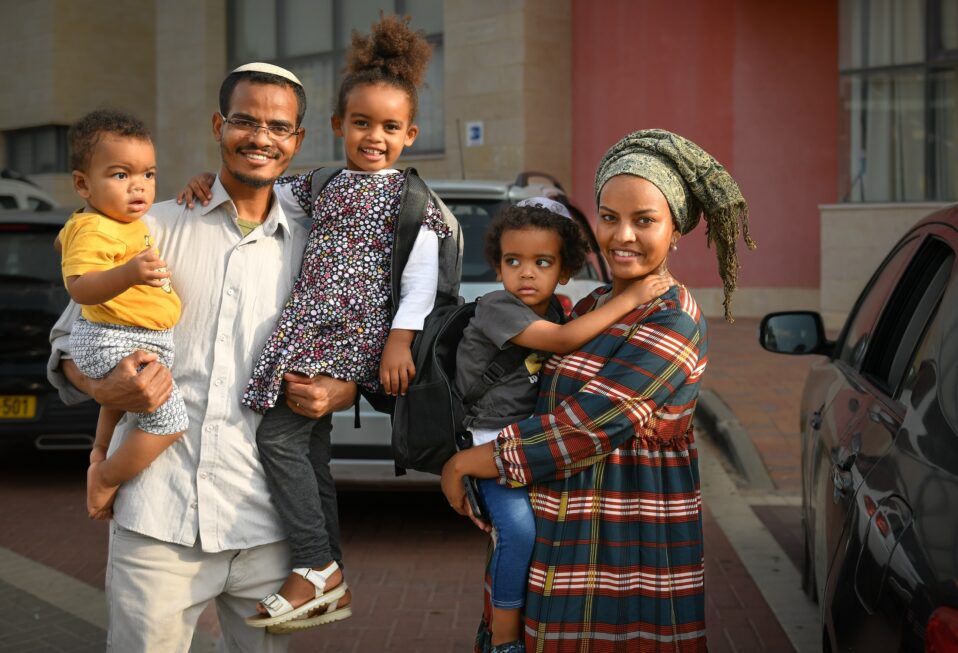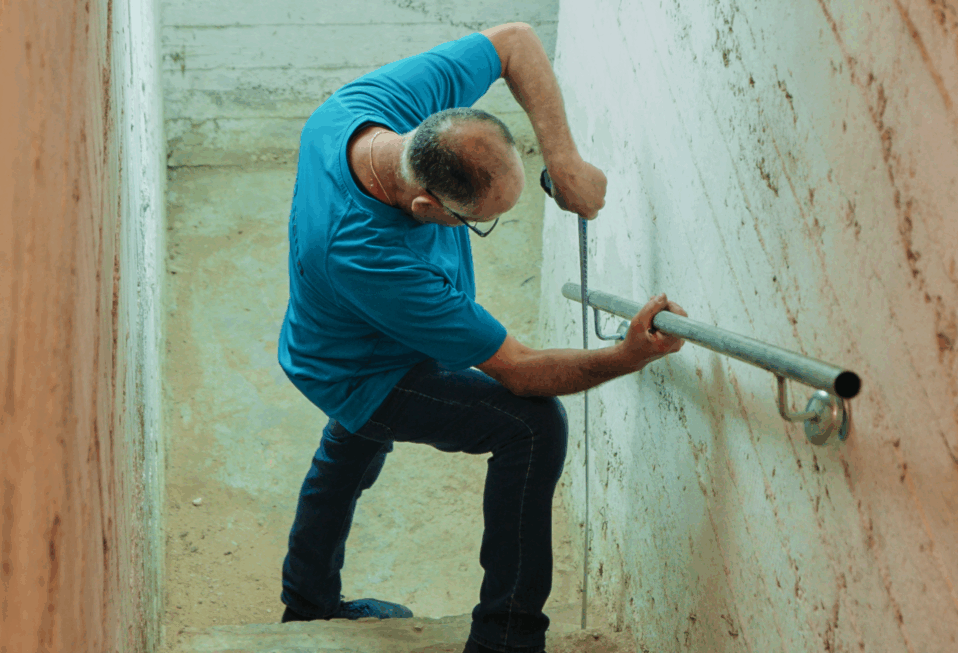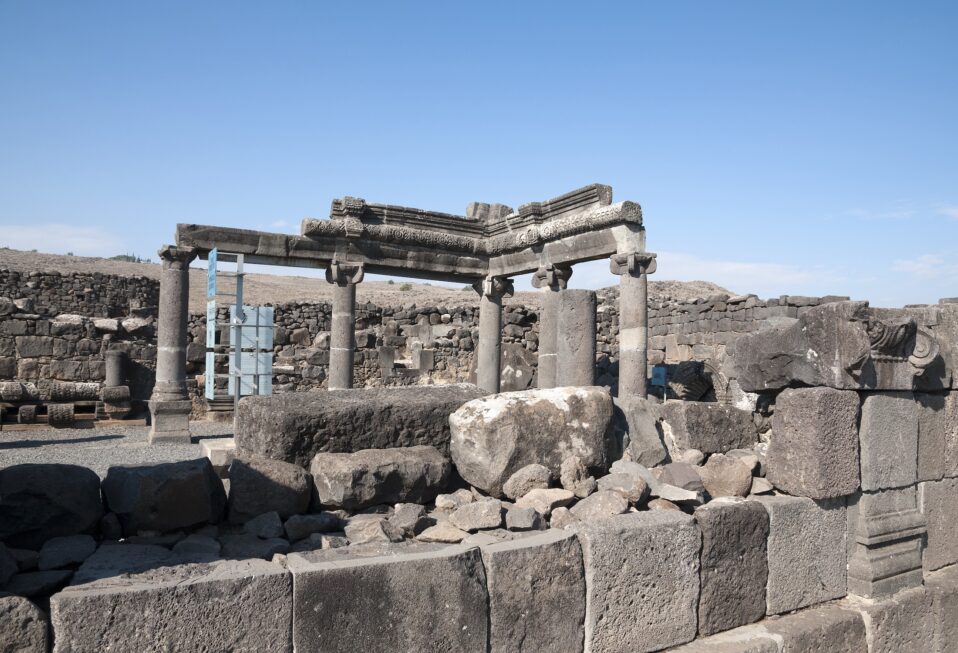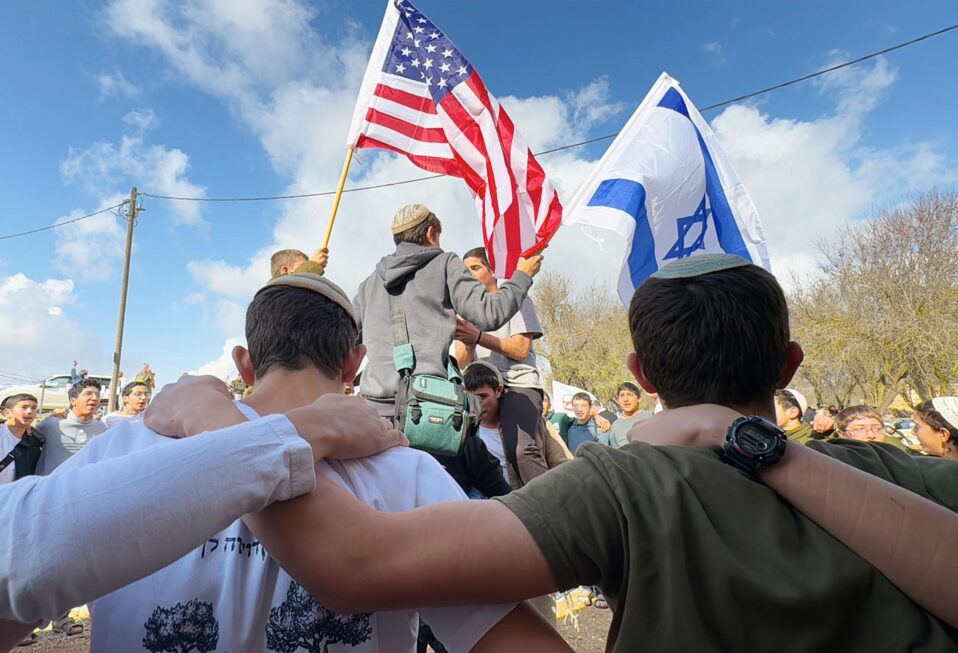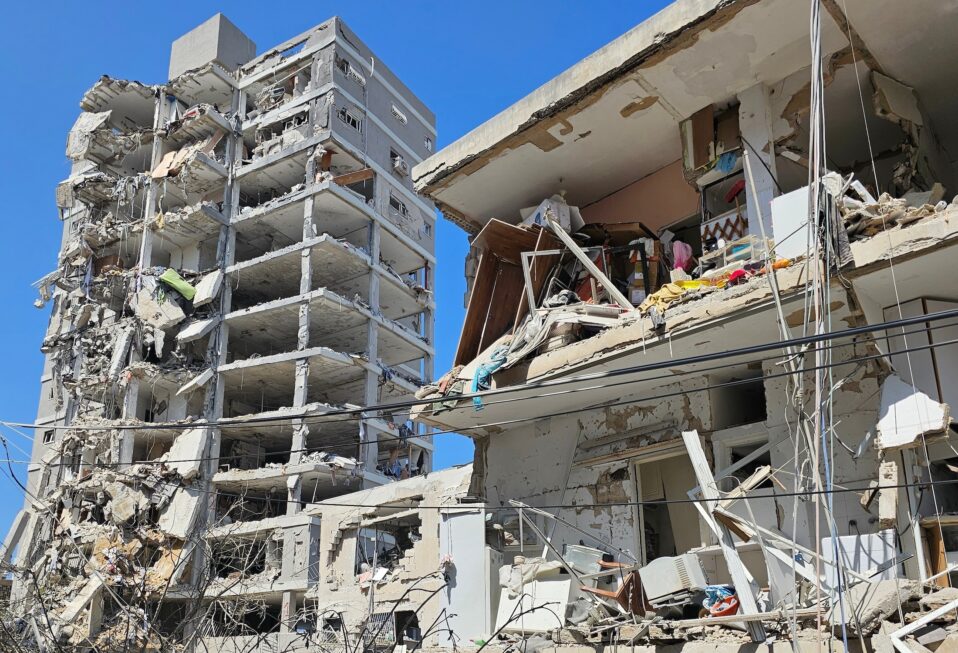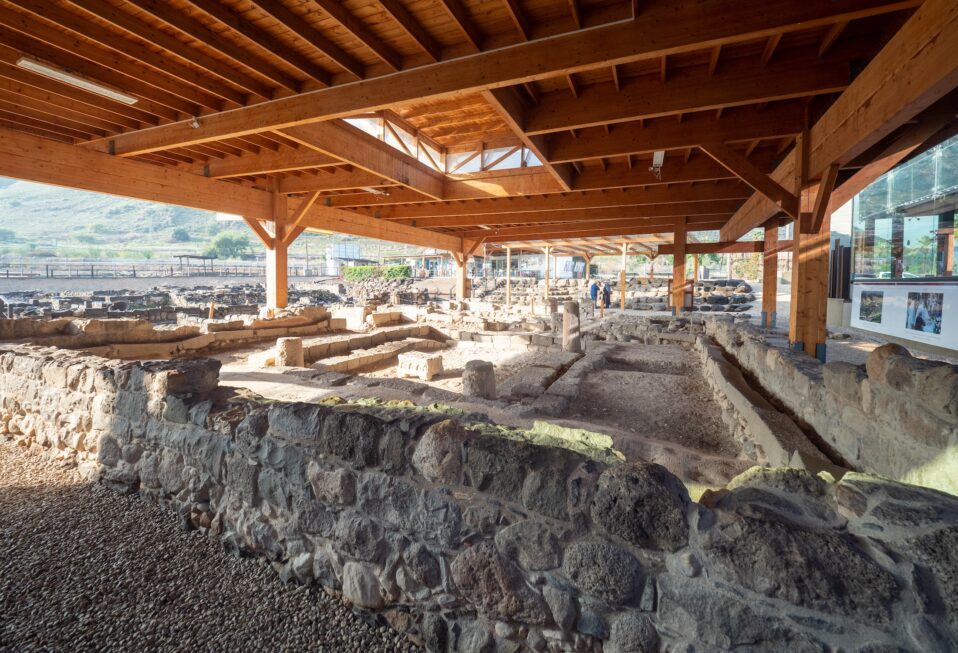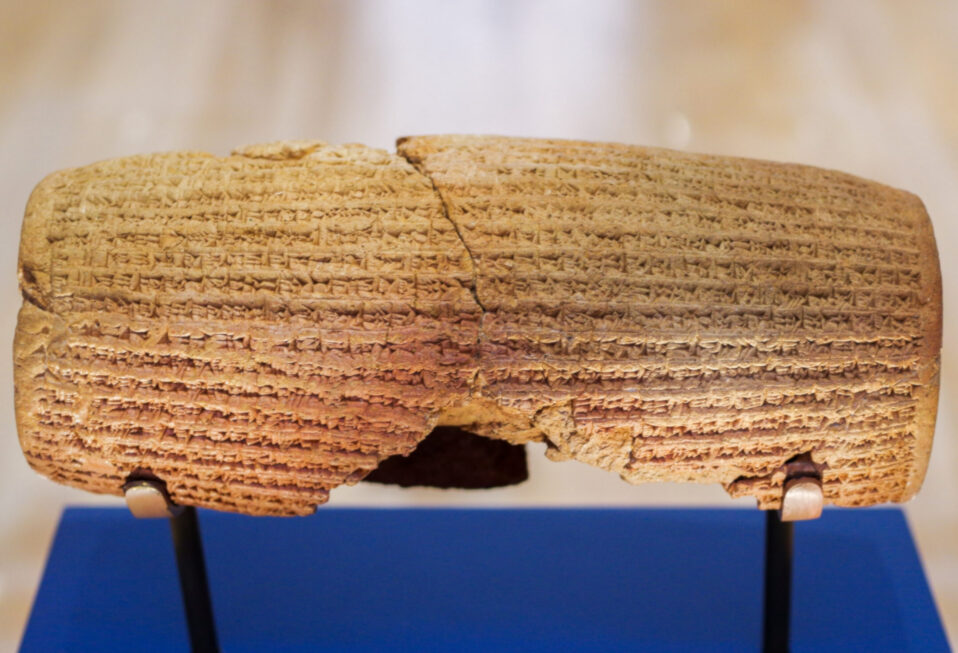By Arlene Bridges Samuels
Since October 7, 2023, Israel has faced accusations about conducting a genocide against Gaza’s Palestinian Arabs. This apartheid accusation, which has been around for decades, includes a favorite lie: that the Jewish population is all white and oppressive. Whether you’re traveling to Israel or viewing online photos, let your eyes tell you the truth about Israel’s diverse citizenry.
A case in point is that upwards of 170,000 Ethiopian-Israelis can be found among Israel’s current population. This inspiring Ethiopian statistic reflects a singular fact: Israel is the only nation in the world that has transported black Africans to freedom instead of to slavery. Allow that fact to sink in—and pass it on, if you will.
In 1973, Israel’s Chief Sephardi Rabbi Ovadia Yosef ruled that Ethiopian Jews were, according to Jewish law, “Sons of Israel” (Bnei Israel). Facing religious persecution and oppression at home, these Africans began the perilous 2,000-mile trek to Israel in relatively small numbers—numbers that ballooned in the early 1980s with Israeli-initiated airlifts undertaken in response to the thousands of Jews dying along the way. What factors drove them to first undertake their dangerous walks through hostile territories?
Similar to all Jews, in the global diaspora Ethiopians held Judaism in their hearts. Their Judaism harkened back to their belief that the Queen of Sheba’s visit to King Solomon resulted in a son, their ancestor Menelek I. Their tradition says that King Solomon gave Menelek a Torah scroll instructing him to teach Ethiopians about biblical Judaism. You may be inclined to dismiss the story, but facts on the ground in Ethiopia prove the ancient Jewish practices in their culture called Beta (House of) Israel.
Encyclopedia Britannica affirms their Jewish Torah culture in Ethiopia. With a Bible and prayer book written in Geʿez—an ancient Semitic language of Ethiopia—they observed the Sabbath, circumcision, synagogues with priests (kohanim) of the villages, offered animal sacrifices, and kept some of the major Jewish festivals. They followed Jewish dietary laws as best they could despite generations of Ethiopian poverty and famine in that nation.
Danielle Mor, a vice president at the Jewish Agency for Israel (JAFI), explains that Ethiopian Jews were among the most ancient Jews in exile. “They are actually believed to be from the tribe of Dan, exiled by the Babylonians.” She further observes that, living in Ethiopia’s northern rural, mountainous region, they were “cut off from the rest of the Jewish world [and] followed more ancient, biblical traditions, not the traditions of the last 2,500 years.”
Fighting famines and persecution in Ethiopia under dictator Mengistu Hail Mariam—and longing for their homeland, Israel—the Ethiopian Jews first headed north to neighboring Sudan. It was not an easy journey. Suffering from starvation, dehydration, and violence meant Ethiopians died by the thousands. Yet the group maintained its cultural determination to reach their ancestral homeland. Thousands of Ethiopians walked into Sudan. They were then housed in strained, sometimes violent conditions in refugee camps.
Israel, learning of the vast number of deaths, decided to get involved. In 1984-1985, the Ethiopian Jews’ dangerous foot journey was transformed into Israeli flights. Via Operation Moses—the first of three clandestine military undertakings—Israeli pilots airlifted an estimated 7,000 Ethiopian Jews from Sudanese refugee camps to Israel. But leaks and political pressure forced Sudan to end the lifesaving airlift prematurely, leaving many people stranded.
In 1985, the U.S. launched Operation Joshua to evacuate the Ethiopian Jews remaining and bring them to safety in Israel. Three countries cooperated in the complex covert logistics: Israel’s Mossad, the U.S. Central Intelligence Agency, and Sudanese State Security. However, this enterprise, too, came to a halt when leaks about Operation Moses became public knowledge and Sudan was pressured by Arab countries to stop.
Operation Solomon, the third masterful operation, was carried out on May 24-25, 1991. Launched to airlift Jews threatened by an escalating civil war in Ethiopia, this remarkable 36-hour enterprise is considered one of the most extraordinary rescue efforts in modern history.
Thirty aircraft were utilized for Operation Solomon, including the Israeli Air Force C-130 Hercules. Seats were removed to maximize passenger capacity and plastic sheeting was laid down for improved hygiene and disease prevention. One El Al 747 airlift set a world record: 1,122 passengers—and the miracle of two babies born during the flight.
During Operation Solomon, doctors and paramedics were on hand for malnourished Ethiopians, providing water and food. A summation from the Jewish Telegraphic Agency reported that the operation’s execution was flawless: planes took 14,087 Ethiopian Jews from Addis Ababa, Ethiopia, to Israel in one weekend. Once, 25 planes were in the air simultaneously, including planes chartered from Ethiopia’s state airline.
So, when you hear cries of “apartheid in Israel,” or “genocide,” or “lack of diversity”—that’s nothing but propaganda! Israel’s Central Bureau of Statistics recorded that between 1980 and 1992, Israel repatriated upwards of 44,766 Jewish Ethiopians. History books, websites, social media, and videos are replete with diverse facts and stories of Israel’s decision to airlift black Ethiopian refugees to their homeland.
In fact, Israel is alone in its dedicated, complex efforts to rescue Africans instead of enslaving them. The United States and Great Britain, for example, cannot make such claims, since their horrific slave trade lasted for several hundred years. Mercifully, both countries long ago abandoned the deadly slave trade, yet true freedom remained ahead in slow legal and activist advocacy for equality.
The Ethiopian Jews’ transition into Israel was indeed complicated and challenging for both Israelis and Ethiopians. As an example, the first years of integrating Ethiopians—who had lived in huts with no electricity—into contemporary Israeli society meant teaching them how to turn on a stove and perform other tasks required for living in a modern culture. Israelis had to make their own adjustments regarding the culture of Ethiopians. Israel, though, has made frequent transitions—receiving people making Aliyah from nations such as India, China, Mexico, and South America—each bringing their own unique cultures.
In frequent trips to Israel, I have met and talked with many wonderful, exceptional Ethiopian citizens. Among them was Shlomo Molla, former deputy speaker of Israel’s Parliament Knesset, who in 1984 arrived in Israel barefooted. Today, Ethiopians serve in the Israel Defense Forces and attend Israel’s Ono College, which champions multiculturalism and where they earn degrees for prestigious positions as attorneys and in the tech sector.
Israel’s enemies have no regard for Psalm 34:13— Keep your tongue from evil and your lips from telling lies. I encourage you to put these facts in your truth-telling toolbox and pass it on as one way to oppose lies by expressing your support for Israel.
Our CBN Israel team welcomes you to join us in prayer this week:
- Pray for those blinded by hate to open their eyes to truths about Israel’s diversity.
- Pray for lingering challenges for Ethiopians to gain added influential roles in Israel.
- Pray for Ethiopian families grieving for deceased family members among the IDF.
- Pray for all Ethiopian family members still in Ethiopia who await their Aliyah.
Arlene Bridges Samuels is the weekly feature columnist for CBN Israel since 2020. Working on the staff of the American Israel Public Affairs Committee (AIPAC) as their SE Regional Outreach Director for nine years, International Christian Embassy Jerusalem USA engaged her as the Leadership Outreach Director part-time for their project American Christian Leaders for Israel. Arlene is an author at The Blogs-Times of Israel, is published at AllIsrael.com and The Jerusalem Connection, and has traveled to Israel since 1990. By invitation, she attends Israel’s Government Press Office Christian Media Summits as part of Christian media worldwide. In 2024, Arlene and her husband Paul co-authored Mental Health Meltdown: Illuminating the Voices of Bipolar and Other Mental Illnesses. www.TheMentalHealthMeltdown.com.


